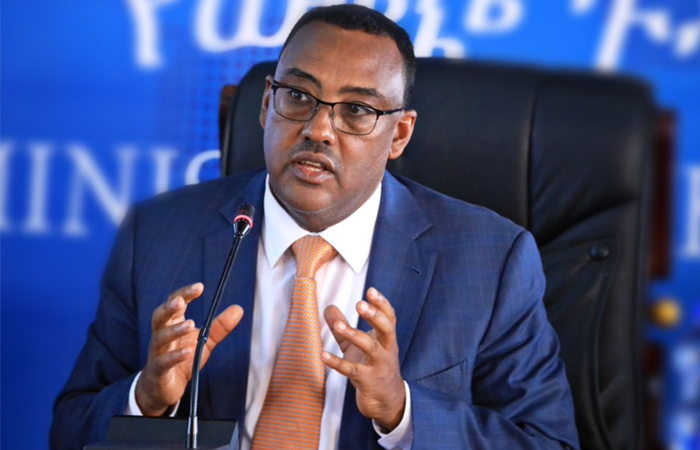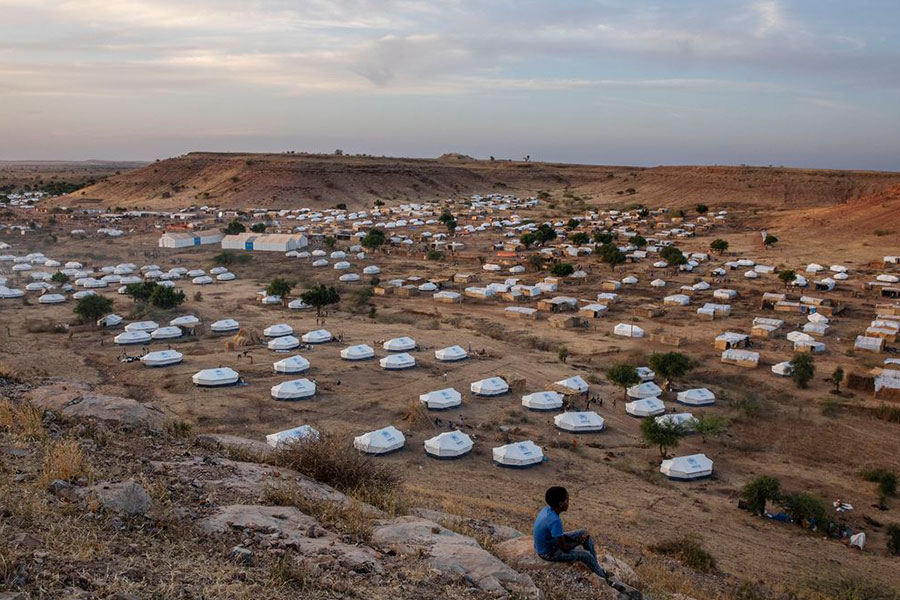
Commentaries | Feb 22,2020
Mar 14 , 2020
By Fasil Yenealem
Late last month, the United State’s Department of Treasury released a statement that brought the diplomatic wrangling over the Grand Ethiopian Renaissance Dam (GERD) to new heights.
It urged Ethiopia to refrain from “final testing and filling” of the Dam before an agreement took place. The statement underlines “the need to implement all necessary dam safety measures in accordance with international standards before filling begins.”
While Egypt initialed the agreement and welcomed the statement of the Treasury Department, Ethiopia rejected it. Sudan’s position is not yet public. Ethiopia argued that the final agreement tabled for signing was not the outcome of the technical discussion between the three countries, and the remaining guidelines and rules must be prepared by none other than the three riparian countries themselves.
Ethiopia also noted that regardless of the negotiation's outcome, the first filling of the GERD will continue as planned in line with the principles of equitable and reasonable utilisation of trans-boundary water resources. Egypt retaliated that if Ethiopia did not accept the agreement “observed” by the United States, it would use “all available” means to defend its national interest. In old political parlance, this is tantamount to a declaration of war.
Ethiopia did not take the sabre-rattling of Egypt seriously. Still, it has now advised Egypt to take the moral ground and engage in negotiation for a win-win solution. If Egypt continues to see the negotiation through its own national interests, the likelihood of a water-war between these two ancient civilizations is not zero.
The statement by the Treasury Department contravenes the fundamental principles of international treaty-making stipulated in the 1969 Vienna Convention on the Law of Treaties. It states that international agreements should be conducted with the principles of free consent and of good faith.
The statement also aggravates the volatile situation of the region. At the outset of the negotiation, the United States should have been careful not to show partisanship toward any one of the parties. The Treasury Department failed to live up to the minimum requirement expected from a sponsor or broker of a negotiation - nonpartisanship.
Ethiopia, by virtue of sovereign right and as the major source of the Nile water, is entitled to utilise this resource as long as it does not inflict appreciable harm on other riparian countries.
“Watercourse States shall in their respective territories utilise an international watercourse in an equitable and reasonable manner,” according to the 1997 Convention on the Law of the Non-navigational Uses of International Watercourses, the sole treaty governing shared freshwater resources that is universally applicable.
Countries are advised to take into account geographic, hydro-graphic, hydrological, climatic, ecological factors and circumstances and the social and economic needs of the watercourse states concerned. They are also expected to consider the population and effects and uses of the watercourse in each state.
Ethiopia agreed to fill the Dam in the rainy seasons, July to Mid-September, over a period of up to seven years to address Egypt's fear that the volume of water reaching Lake Nasser would decrease as a result of the instant filling of the GERD. This is a big concession on the part of Ethiopia that Egypt and Sudan should welcome wholeheartedly.
If the United States is really interested in de-escalating the tension between Ethiopia and Egypt, it should change its tactics.
The government of the United States should acknowledge that its statement was uncalled for, and give assurance to Ethiopia that the remaining negotiations will continue exclusively between the parties themselves. The United States and World Bank should continue to act as observers and remain on standby until the negotiating parties need them to be directly involved. Taking sides in this complicated situation will only exacerbate the tension.
The US should also council Egypt. The countries approach will only make Ethiopia more determined. If history is a witness, there is no reason that Ethiopia cannot be goaded into taking an eye for an eye. War is unlikely, but an escalation of the matter will cause consequences that few could predict.
Ethiopia recognises Egypt’s fate depends on the Nile. Egypt should also acknowledge that there is enough water in the Nile to share with other countries.
PUBLISHED ON
Mar 14,2020 [ VOL
20 , NO
1037]


Commentaries | Feb 22,2020

Commentaries | Oct 01,2022

Fortune News | May 24,2021

View From Arada | May 07,2022

Life Matters | Mar 16,2019

Editorial | Feb 26,2022

Radar | Apr 24,2021

Radar | Jul 27,2019

My Opinion | Feb 24,2024

Viewpoints | Aug 29,2020

Photo Gallery | 180016 Views | May 06,2019

Photo Gallery | 170211 Views | Apr 26,2019

Photo Gallery | 161214 Views | Oct 06,2021

My Opinion | 137240 Views | Aug 14,2021

Dec 22 , 2024 . By TIZITA SHEWAFERAW
Charged with transforming colossal state-owned enterprises into modern and competitiv...

Aug 18 , 2024 . By AKSAH ITALO
Although predictable Yonas Zerihun's job in the ride-hailing service is not immune to...

Jul 28 , 2024 . By TIZITA SHEWAFERAW
Unhabitual, perhaps too many, Samuel Gebreyohannes, 38, used to occasionally enjoy a couple of beers at breakfast. However, he recently swit...

Jul 13 , 2024 . By AKSAH ITALO
Investors who rely on tractors, trucks, and field vehicles for commuting, transporting commodities, and f...

Nov 1 , 2025
The National Bank of Ethiopia (NBE) issued a statement two weeks ago that appeared to...

Oct 25 , 2025
The regulatory machinery is on overdrive. In only two years, no fewer than 35 new pro...

Oct 18 , 2025
The political establishment, notably the ruling party and its top brass, has become p...

Oct 11 , 2025
Ladislas Farago, a roving Associated Press (AP) correspondent, arrived in Ethiopia in...

Nov 2 , 2025
The National Bank of Ethiopia (NBE) has scrapped the credit-growth ceiling that had s...

Nov 2 , 2025 . By SURAFEL MULUGETA
The burgeoning data mining industry is struggling with mounting concerns following th...

Nov 2 , 2025 . By YITBAREK GETACHEW
Berhan Bank has chosen a different route in its pursuit of a new headquarters, opting for a transitional building instea...

Nov 2 , 2025 . By BEZAWIT HULUAGER
Nib International Bank S.C. has found itself at the epicentre of a severe governance...